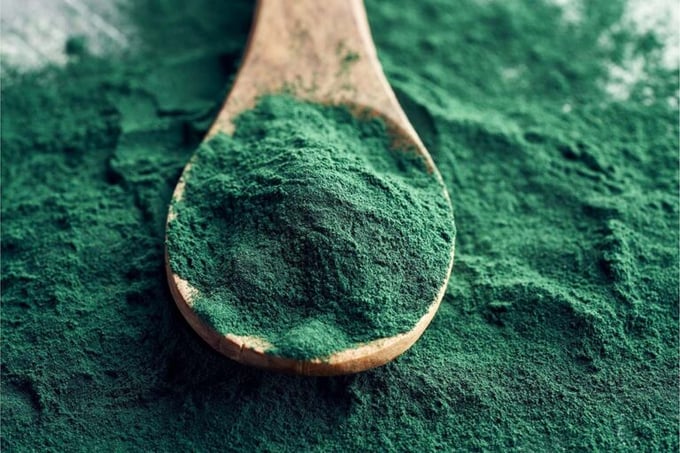November 28, 2025 | 08:14 GMT +7
November 28, 2025 | 08:14 GMT +7
Hotline: 0913.378.918
November 28, 2025 | 08:14 GMT +7
Hotline: 0913.378.918

The scientists said Spirulina and Chlorella exhibit protein levels of up to 50-70%, outperforming traditional sources like soybean meal. Photo: Canva.
The research, published in Frontiers, led by scientists from Texas A+M University in the US, looked into the essence, diversity, chemical composition and nutritional merits of algae, spotlighting its emergence as innovative nutrient sources and health supplements for poultry.
The growing interest in algae within poultry nutrition stems from their diverse nutritional profile, as it boosts a rich array of proteins, lipids, amino acids, vitamins, minerals and antioxidants, leading them to be valuable feed constituents.
The scientists said incorporating both macroalgae and microalgae could help increase protein levels – Spirulina and Chlorella exhibit protein levels of up to 50-70%, outperforming traditional sources like soybean meal. This premium protein source not only furnishes vital amino acids for muscular development and overall health but also serves as a reservoir of omega-3 fatty acids, such as eicosapentaenoic acid (EPA) and docosahexaenoic acid (DHA), presenting numerous health benefits for both birds and consumers.
Algae also boast antioxidant properties attributed to bioactive compounds like phycocyanin and astaxanthin, mitigating oxidative stress and boosting the bird’s immune response, fostering robust health and disease resilience.
The study found that research evidence underscores the enhancement of growth rates, feed conversion ratios, carcass quality, and meat attributes in broilers, while in layers, supplementation promotes increased egg production, superior egg quality and increased concentrations of beneficial nutrients such as omega-3 fatty acids.
Algae can also mitigate the environmental footprint of poultry production though at present results are sporadic, leading to the need for further research to find out optimal doses and blends for different algae species in poultry diets. Standardising the composition of algae utilised in research is imperative, paving the way for potential applications in poultry nutrition as growth stimulants and substitutes for antibiotics.
However, a deeper understanding of dosage, combination and mechanism of action through rigorous scientific investigation is key to unlocking algae’s full potential within poultry nutrition, the study concludes.
(PW)

(VAN) A new study reveals how the simultaneous effects of ocean acidification, salinity and loss of oxygen are making the world more fragile.

(VAN) Hopes are growing that the creation of the first 3D turkey gut model could be a turning point in the battle against the virulent blackhead disease.

(VAN) Tyson, America’s biggest meat supplier, plans to shutter one of its largest beef processing plants as the industry continues to struggle with low cattle supplies and political pressure from Washington.

(VAN) New FAO study shows how digital solutions are empowering farmers and fishers to prevent losses and build resilient agrifood systems.

(VAN) Brazil's COP30 presidency pushed through a compromise climate deal on Saturday that would boost finance for poor nations coping with global warming but that omitted any mention of the fossil fuels driving it.

(VAN) Poultry farmers in the UK have been warned that they could face one of the worst winters yet for bird flu.

(VAN) Prices of main-crop paddy have risen sharply, with jasmine rice hitting 16,100 baht per tonne — the highest level in years.